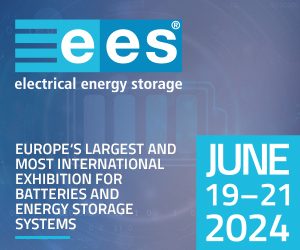How Can We Help?
About Fuel Cell Efficiency
Fuel cell efficiency
Theory
Energy cells are not constrained by the maximum Carnot cycle efficiency as combustion engines are, because they do not operate with a thermal cycle. At times, this is misrepresented when fuel cells are stated to be exempt from the laws of thermodynamics. Instead, it can be described that the ‘limitations imposed by the second law of thermodynamics on the operation of fuel cells are much less severe than the limitations imposed on conventional energy conversion systems’. Consequently, they can have very high efficiencies in converting chemical energy to electrical energy, especially when they are operated at low power density, and using pure hydrogen and oxygen as reactants.
The efficiency of a fuel is very dependent on the current through the fuel cell: as a general rule, the more current drawn, the lower the efficiency. A cell running at 0.6V has an efficiency of about 50%, meaning that 50% of the available energy content of the hydrogen is converted into electrical energy; the remaining 50% will be converted into heat. For a hydrogen cell the second law efficiency is equal to cell voltage divided by 1.23, when operating at standard conditions. This voltage varies with fuel used, and quality and temperature of the cell. The difference between enthalpy and Gibbs free energy (that cannot be recovered) will also appear as heat.
In practice
For a fuel cell operated on air (rather than bottled oxygen), losses due to the air supply system must also be taken into account. This refers to the pressurization of the air and adding moisture to it. This reduces the efficiency significantly and brings it near to the efficiency of a compression ignition engine. Furthermore fuel cells have lower efficiencies at higher loads. It is also important to take losses due to production, transportation, and storage into account. Fuel cell vehicles running on compressed hydrogen may have a power-plant-to-wheel efficiency of 22% if the hydrogen is stored as high-pressure gas, and 17% if it is stored as liquid hydrogen.
Fuel cells cannot store energy like a battery, but in some applications, such as stand-alone power plants based on discontinuous sources such as solar or wind power, they are combined with electrolyzers and storage systems to form an energy storage system. The overall efficiency (electricity to hydrogen and back to electricity) of such plants (known as round-trip efficiency) is between 30 and 50%, depending on conditions. While a much cheaper lead-acid battery might return about 90%, the electrolyzer/fuel cell system can store indefinite quantities of hydrogen, and is therefore better suited for long-term storage.
Solid-oxide fuel cells produce exothermic heat from the recombination of the oxygen and hydrogen. The ceramic can run as hot as 800 degrees Celsius. This heat can be captured and used to heat water in a combined heat and power (CHP) application. When the heat is captured, total efficiency can reach 80-90%. CHP units are being developed today for the European home market.







